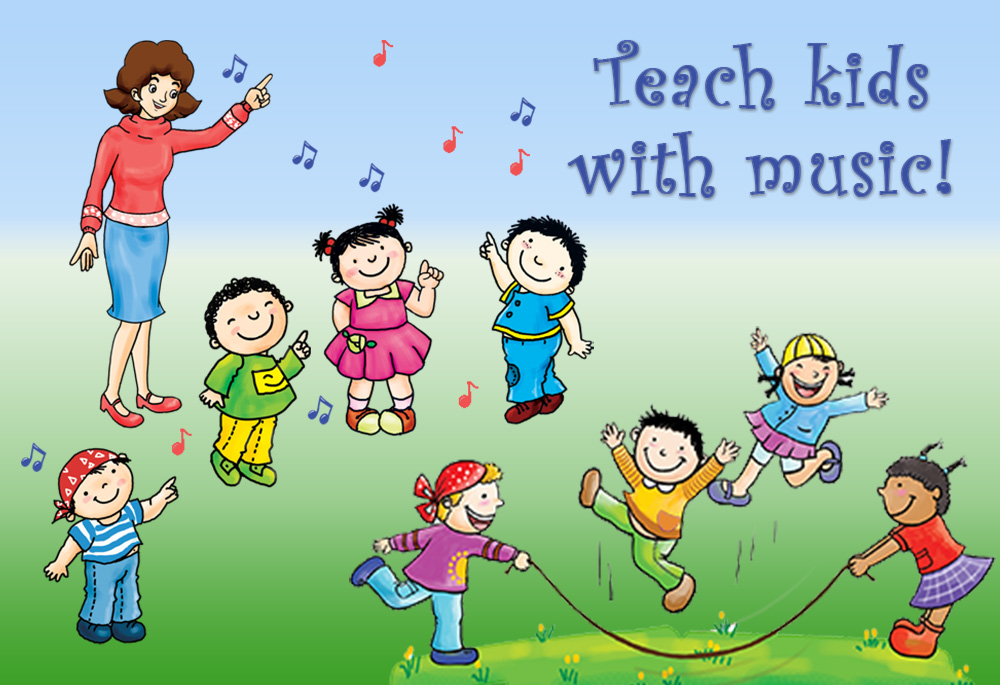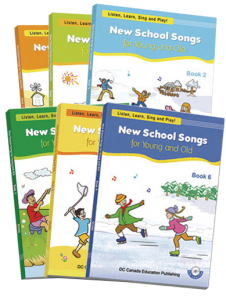We sing in the car. We sing in the shower. We sing our ABCs with our kids. Let’s face it: music is everywhere. And thank goodness it is! Where would we be without our concerts, our playlists, our late-night serenades?
Kids are naturally inclined to wiggle, make silly sounds, and skip about when it should be time to learn. So why not transform their impulses into a perfect learning opportunity? Music is beneficial for listeners of all ages but has the most effects on kids who are in a crucial stage of their development. In fact, learning through song directly improves emotional, physical, and interpersonal skills, not to mention the intellectual growth it fosters.
Physical Benefits
Kids love to move, and what better way to boost their energy than through music? Having music in the classroom gets kids involved in lessons and keeps them from getting antsy and distracted. Their gross and fine motor skills, including coordination, will drastically improve by saving time for a few songs each day. Plus, dancing is exercise and allows kids to be as silly and excited as they want to, even in the classroom! All the energy they use up while dancing and singing school songs is energy that won’t be overflowing when it’s time to sit down for reading, math, or science.
Development of Self
Recent studies are beginning to outline the effects of music on the brain, especially in areas such as healthy emotional development. The affected brain structures promote attention and concentration, which directly influence kids’ success in school. Meanwhile, the variety of music available allows children to make associations between songs and their own feelings. This is especially helpful to kids who may not have the words or the ability to describe their emotions. Playing an instrument, singing, or even just listening to music encourages creativity. Music is energy. It’s passion. It’s raw emotion, and dialogue, and creative thinking. It gives kids a new way to express themselves and improves their self-esteem. Check out some simple children’s songs here.
Interpersonal Skills
Nobody will deny that music brings people together. From concerts to sharing earphones plugged into an old iPod, from public Spotify playlists to garage bands, music forges meaningful connections between individuals of different backgrounds. Since your taste in music is one of many aspects that defines your identity, sharing your songs with others allows you to share pieces of yourself. Bringing music into the classroom nurtures healthy interactions between students—they learn to cooperate, share their passions, and communicate positively. This opportunity to practice social skills is indispensable for children who are just beginning to figure out their place in society.
General Knowledge
Most people know at least a few lyrics to the songs they hear all the time—some of us even memorize hundreds of songs with minimal effort. Clearly, music helps you remember! So, when teaching kids new vocabulary words, why not use music to ensure the concepts stay fresh in their minds? Think of the alphabet song. Why not sing the colours, the numbers, and the days of the week too?
Music also favours numeracy, problem-solving, spatial reasoning, and critical listening skills that can be applied to different school subjects, like math or science. Certain songs even require kids to follow simple commands, like “Clap your hands” or “Jump around.” This helps children learn to follow directions and take turns, all while still having fun and expanding their vocabulary. Check out these school songs perfect for active classrooms.
Music and Reading Abilities
DC Canada is all about books, but when we discovered how important music is to developing better language and literacy skills, we decided to provide educational songs about all sorts of school and life events that children experience. Young kids need music to learn sounds, recognize phonemes and how these are paired up to form words, and identify patterns. Songs help with vocabulary, new words and ideas, definitions, pronunciation, and rhymes. Several studies highlight the connection between music and literacy in young children, but even adult foreign language learners benefit from listening to music in their target language. Introduce kids to music to ensure their school time is exciting, instructive, and fun.


